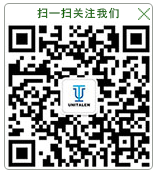Unitalen Assisted a World-Renowned Automotive Powertrain Manufacturer in Substantially Resolving Patent Infringement Disputes, Achieving a Global Settlement
January 20, 2025Case Brief
Company A is a globally renowned independent automotive powertrain manufacturer, with headquarters in Belgium and has main R&D and production centers in Belgium, Netherlands, and China. Company A is the patentee of two invention patents related to "Dual Clutch Transmission (referred to as DCT) Technology."
Company B is one of the world's largest producers of transmission systems for private and commercial vehicles, with headquarters in Germany, and provides automotive transmission system products or technologies to internationally renowned Original Equipment Manufacturers such as Mercedes-Benz, Ferrari, Audi, BMW, Volvo, Ford, and General Motors. Company B is one of the subsidiaries of Canadian company M, which is one of the world's largest automotive component manufacturers.
Company C is a well-known enterprise in China, which is the manufacturer and seller of the alleged infringing products in the Chinese Mainland. Company C's dual-clutch transmission technology stems from Company B's license.
From August 2022 to September 2023, Company A sent notification letters regarding the patent infringement dispute to Company C, pointing out that the two dual-clutch transmission products manufactured and sold by Company C were suspected of infringing Company A's two invention patents and requesting negotiations on patent royalties for the products.
In March, October, and December 2023, Unitalen's attorney team, under the commission by Company B and Company C, conducted a prudent analysis of the two alleged infringing products and issued a detailed non-infringement analysis report to Company A.
In November 2023, on the basis of the patents of divisional applications, Company A filed two lawsuits of patent infringement with the Nanjing Intermediate People's Court against two products manufactured and sold by Company C and its affiliated companies. Company A claimed 120,000,000 yuan, including the damages of 24,000,000 yuan and 95,000,000 yuan, respectively, plus the costs for safeguarding its rights.
Concurrently, Company A also filed multiple cases of patent infringement disputes against Company B regarding the "Dual Clutch Transmission (DCT) Technology" in Europe.
After accepting the commission, Unitalen's attorney team immediately handled the matters pertaining to the defense of the two civil infringement cases in the Nanjing Intermediate People's Court and the matters of request for invalidation of the involved invention patents and associated invention patents.
In January 2024, Unitalen represented the defendant Company C in filing the request for invalidation of the involved patents with the China National Intellectual Property Administration (CNIPA). In June 2024, Unitalen represented Company B in filing the second request for invalidation of the involved patents with the CNIPA. In August 2024, Unitalen represented Company B in filing the request for invalidation of the parent patent of the involved patents with the CNIPA.
The Reexamination and Invalidation Department of the CNIPA organized oral hearings for the above patent invalidation cases in June, August, and October 2024, respectively.
Highlights of the Case
1. Unitalen's attorney team has conducted a thorough investigation into the information of the global family patents of the involved patents. As found in the case of the second request for invalidation of the involved patents, Evidence 6 has an international filing date of April 20, 2011, and the earliest priority date of April 20, 2010. The Unitalen's attorney team asserts that both the international filing date and the earliest priority date of Evidence 6 are earlier than the earliest priority date of the involved patents, October 18, 2011. The earliest priority claimed by the involved patents is not a "first application" in the sense of the Chinese Patent Law. Therefore, the relevant claims of the involved patents are not entitled to priority. As a result, Evidence 6 can serve as the prior art for evaluating the novelty and inventive step of the relevant patents' relevant claims.
2. In the present case, in an effort to increase the likelihood of maintaining the patents valid, the patentee has made multiple amendments and limitations to the scope of protection of the claims. The patentee's multiple amendments in response to the request for invalidation also prominently manifest the significant threat to the involved patents posed by the request for invalidation and evidence, as presented by Unitalen's team.
3. To prevent the patentee from gaining an advantage in both infringement litigation and patent invalidation proceedings, and to strive for the most favorable invalidation examination output, under the circumstance that the patentee expansively interprets the claims in infringement allegations, the petitioner for invalidation, in the principle of good faith, can assert the application of the reverse doctrine of estoppel.
Global Settlement
On the day of the infringement litigation hearing organized by the Nanjing Intermediate People's Court in October 2024, Company A in Belgium and Company B in Germany reached a settlement agreement. The patentee, Company A, immediately submitted in court the application for withdrawal of the lawsuit against the Chinese Company C and its affiliate companies. Thereafter, Unitalen's team, representing Company B and Company C, successively submitted applications to withdraw the request for invalidation to the CNIPA.
The patent disputes between world-renowned automotive powertrain manufacturers have thus ended, with a sound resolution of two civil infringement disputes in the Chinese Mainland, three patent invalidation cases, and multiple litigation and invalidation cases filed in the European region. Unitalen's attorney team successfully assisted the clients in achieving the desired outcomes in the patent disputes.




